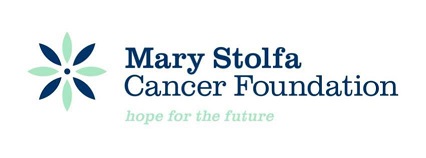 |
 |
 |
 Clinical trials are research studies in which people help doctors find ways to improve health and cancer care. Studies try to answer scientific questions and find better ways to prevent, diagnose, or treat cancer.  WHY ARE THERE CLINICAL TRIALS?
A clinical trial is one of the final stages of a long and careful cancer research process. Studies are done with cancer patients to find out whether promising approaches to cancer prevention, diagnosis, and treatment are safe and effective. WHAT ARE THE DIFFERENT TYPES OF CLINICAL TRIALS?
Treatment trials test new treatments (like a new cancer drug, new approaches to surgery or radiation therapy, new combinations of treatments, or new methods such as gene therapy). Prevention trials test new approaches, such as medicines, vitamins, minerals, or other supplements that doctors believe may lower the risk of a certain type of cancer. These trials look for the best way to prevent cancer in people who have never had cancer or to prevent cancer from coming back or a new cancer occurring in people who have already had cancer. Screening trials test the best way to find cancer, especially in its early stages. Quality of Life trials (also called Supportive Care trials) explore ways to improve comfort and quality of life for cancer patients. WHAT ARE THE DIFFERENT PHASES OF CLINICAL TRIALS?
Most clinical research that involves the testing of a new drug progresses in an orderly series of steps, called phases. This allows researchers to ask and answer questions in a way that results in reliable information about the drug and protects the patients. Clinical trials are usually classified into one of three phases: Phase I trials: These first studies in people evaluate how a new drug should be given (by mouth, injected into the blood, or injected into the muscle), how often, and what dose is safe. A Phase I trial usually enrolls only a small number of patients, sometimes as few as a dozen. Phase II trials: A phase II trial continues to test the safety of the drug, and begins to evaluate how well the new drug works. Phase II studies usually focus on a particular type of cancer. Phase III trials: These studies test a new drug, a new combination of drugs, or a new surgical procedure in comparison to the current standard. A participant will usually be assigned to the standard group or the new group at random (called randomization). Phase III trials often enroll large numbers of people and may be conducted at many doctors' offices, clinics, and cancer centers nationwide. Only you can make the decision about whether or not to participate in a clinical trial. Before you make your decision, you should: Learn as much as possible about your disease and the trials that are available to you. See other sections of our Web site for general cancer information, as well as for guidance on how to find current clinical trials that might be appropriate for you. Then, talk about this information and how you feel about it with your doctor and/or nurse, family members and friends to help you determine what is right for you. WHAT ARE THE POTENTIAL RISKS AND BENEFITS OF CLINICAL TRIALS?
Potential benefits include:
Potential risks include:
HOW ARE PARTICIPANTS PROTECTED?
The government has a system designed to protect human research subjects. Before a government-funded clinical trial can begin, the trial plan (also called a protocol) must be approved. During the trial, review committees make sure that the plan is being followed and participants are being protected. There is also a related Web-based CME/CEU course called Human Participant Protections: Education for the Research Team. WHAT IS INFORMED CONSENT?
Informed consent is a process in which you learn the key facts about a clinical trial before you decide whether or not to participate . In addition to talking about these facts with the research doctor or nurse, they will be included in a written consent form that you can take home to read and discuss. The consent form will include details about:
Don't hesitate to ask questions until you have all the information you need. While informed consent begins before you agree to participate in a trial, you should feel free to ask the health-care team any questions you have at any point. Informed consent continues as long as you are in the study. You can change your mind and leave the study whenever you want -- before the study starts or at any time during the study or follow-up period. COULD I RECEIVE A PLACEBO? In treatment trials involving people who have cancer, placebos ("dummy" pills that contain no active ingredient) are very rarely used. Many treatment trials are designed to compare a new treatment with a standard treatment, which is the best treatment currently known for a cancer based on results of past research. In these studies, patients are randomly assigned to one group or another. When no standard treatment exists for a cancer, a study may compare a new treatment with a placebo. However, you will be told about this possibility during informed consent, before you decide whether or not to take part in the study. WHAT HAPPENS DURING A TRIAL?
If you decide to participate in a clinical trial, you will work with a research team. Team members may include doctors, nurses, social workers, dieticians, and other health care professionals. They will provide your care, monitor your health carefully, and give you specific instructions about the study. Anyone considering a clinical trial should feel free to ask any questions or bring up any issues concerning the trial at any time. The following suggestions may give some you ideas as you think about your own questions. THE STUDY What is the purpose of the study? POSSIBLE RISKS AND BENEFITS What are my possible short-term benefits? PARTICIPATION AND CARE What kinds of therapies, procedures and /or tests will I have during the trial? PERSONAL ISSUES How could being in this study affect my daily life? Tips for Asking your Doctor About Trials
Visit the following pages for cancer centers offering clinical trials: To obtain clinical trial listings for a specific type of cancer Click Here and you will be taken to "ClinicalTrials.gov". There you can search for a particular type of cancer and it will list trials that are currently being conducted regarding it. | Cancer Centers Offering Clinical Trials (States A | Cancer Centers Offering Clinical Trials (States N- | | About Mary Stolfa | Our Mission | Newsletter | Volunteer | Beauty Parlor | News Articles | Clinical Trials | Other Resources for Cancer Information | Nutrition | Acknowledgement, Awards & Public Acclaim | Foundation Projects | MSCF Products | | Return Home | Fundraisers | Donations | Wall of Honor | Stories of Hope | Information on Specific Cancers (A-M) | Cancer Issues | Contact Us | Site Index | |
||
